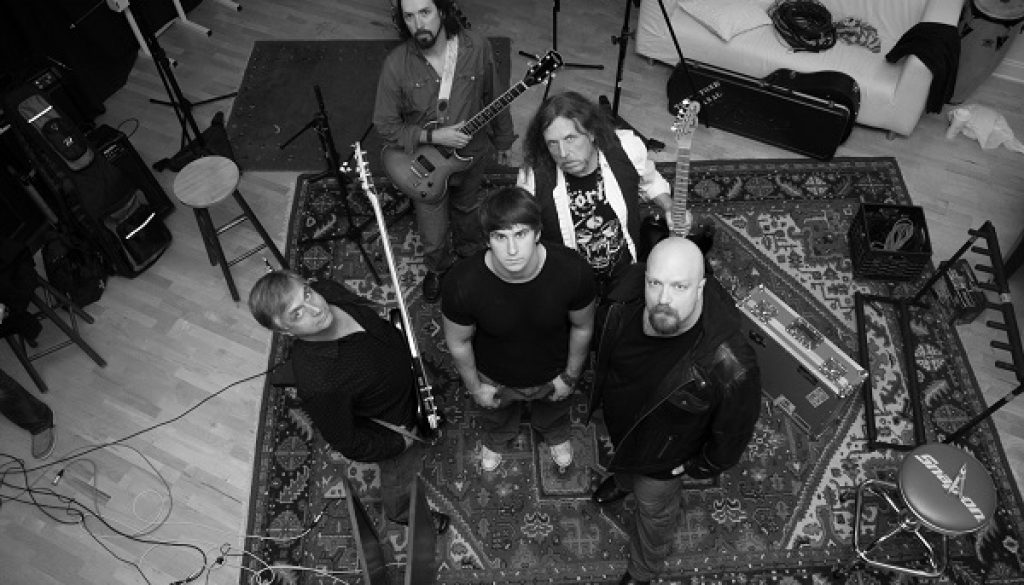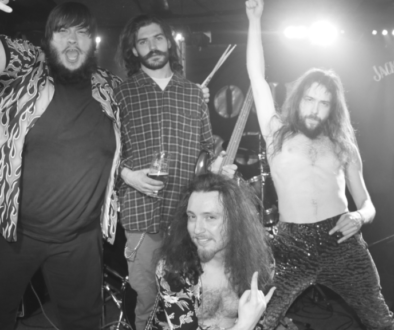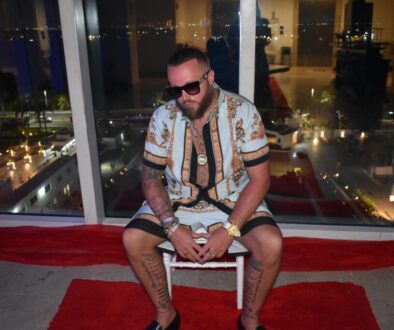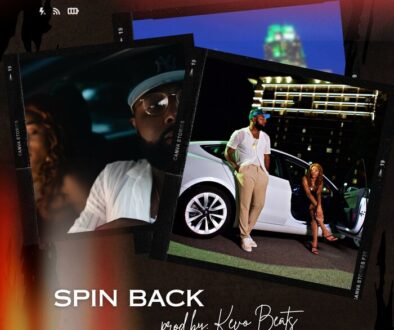Exclusive Interview with Catalina Shortwave
As with many rock bands, Catalina Shortwave’s story starts in a basement. So what’s special here?
Well, for starters, this was a basement in New England, in winter. Unless you’re well heeled, that means it was very, very cold. And very, very wet. That is how Catalina Shortwave started. Cold, wet, and penniless. Their first release, 2014’s Repeater, was produced in a chilled basement on the barest of budgets, which is a nice way of saying that everything they used to make it was begged for, borrowed, or stolen. Repeater was lo-fi and raw, but the band’s songwriting and its strong performances shined.
Now comes Catalina Shortwave with its second release, Radio Voodoo: Songs from the Dark End of the Dial, an offering that brings together the pluses of professional production with the immediacy and honesty of the best of DIY.
Catalina Shortwave is based in western Connecticut, U.S.A. Radio Voodoo is a collection of 7 new songs delivered with the band’s characteristic emotional intensity, exploring dark themes of love and betrayal, longing and loss in a manner that is both intelligent and accessible – such as with `Anne Boleyn,’ a punkish rocker told from the perspective of Boleyn’s jilted lover, who mourns her decision to marry King Henry but is not too unhappy that things haven’t worked out for her as planned. It is a familiar story, but the band turns to history to tell it.
David Rizzo (words and vocals), Martin Stauffer (guitars), Keith Morey (guitars), Roy Scaturo (bass guitar) and John Garvey (drums) all live in or around hilly Ridgefield, Connecticut, where for the past two years they have been creating, rehearsing and recording their music in a roomy log cabin-looking studio in the New England woods. And when not there, Catalina Shortwave can be caught playing clubs all over their home state and just-within-reach New York City, with occasional junkets elsewhere, bringing their supercharged and riveting live shows to the growing base of rockers, punks, metalheads and even lovers of the blues and soul that are drawn to something fresh and yet familiar in their sound. To the initiated this comes as no surprise, for Catalina Shortwave are veteran musicians who’ve played in touring disco bands in the 70s (Roy), thrashcore bands a bit more recently (John), and a slew of other known or obscure outfits spanning punk to country-rock to power metal (everyone else).
As Catalina Shortwave continues to tour the northeastern and mid-Atlantic United States to promote Radio Voodoo, they have been hard at work recording their next release, due early 2016. New avenues will be explored, they say, both as to themes and to their songwriting. Radio Voodoo can be purchased online at Amazon.com, iTunes, CD Baby and all other major distribution outlets. Physical copies of their releases are available at Amazon, CD Baby and at their performances.
Exclusive Interview:
Exposed Vocals: So tell us your story. Where did you grow up? What made you decide to become an artist?
Keith Morey: Shelton, CT. I’ve always been big into music, it’s the only thing that I really take seriously. I’m a music fan first before anything, I love concerts and seeing live music but there wasn’t much going on musically around here that interested me so I decided to try and do something about it.
Exposed Vocals: How did you come up with that name? What was your inspiration behind it?
David Rizzo: Its not really a thing, its just intended to evoke an image – a desert horizon, the western sky, a desert radio station, a person out in no-man’s land positioned between a troubled past and an unknown future and this radio station pumps out this music and gives form and shape to a whirlwhind of emotion inside.
Exposed Vocals: What do you think about online music sharing? Do you ever give your music away for free? Why?
Keith Morey: I do not agree with music sharing. I consider it stealing. If a band wants to make some of their music free to promote themselves that is fine but it should be totally up to the band and the band only. It is their product, it what they produce. They put their time, money and energy to create something and some people think it is ok to take it for free. It’s not. It hurts the artist’s ability to support themselves and their craft, and it hurts the overall quality of the music.
Exposed Vocals: Since everyone was a start-up once, can you give any smaller or local bands or artists looking to get gigs and airplay some tips?
David Rizzo: Yes, make your own luck. And get to know as many people like yourself as possible, keep expanding your circle.
Exposed Vocals: Do you ever make mistakes during performances? How do you handle that?
David Rizzo: We all do from time to time. We take having fun very seriously. What that means is that while performing is about that transcendent joy, that stepping outside your normal self and making a connection with the music and the audience, after a gig we will assess how things could have been better, how to correct any errors.
Exposed Vocals: Do you tour? Anything interesting happen on tour that you think our readers would enjoy hearing about?
David Rizzo: My days of piling into the van and living on Spaghetti-Os are over. I don’t have that kind of life anymore, but we play regularly in clubs in New York City and our home state and occasionally elsewhere, so its regional touring. Online, of course we try to reach farther.
Exposed Vocals: Where do you usually gather songwriting inspiration? What is your usual songwriting process?
Keith Morey: Well I listen to music constantly so I’m always inspired by that. Usually I just sit down with my guitar and start fiddling around. After a while I’ll come up with some riff that I like and just kind of build it from there. I usually record it onto my iPad and send it to Dave who comes up with the lyrics.
Exposed Vocals: Do you have a band website? What online platforms do you use to share your music?
David Rizzo: We’re at catalinashortwave dot com. We have a presence on the usual suspects – Instagram, Twitter, Soundcloud. It’s a handful to keep it all up to date and active. I’d like to see a platform geared totally towards musicians where you can manage all this stuff from one portal.
Exposed Vocals: What are some really embarrassing songs that we might find on your mp3 player?
David Rizzo: The list is long. I like a lot of the singer-songwriter stuff from the seventies. There was a heightened attention to songcraft and for me a lot of those songs are packed with nostalgia. So you’ll find Olivia Newton John, David Gates. I should probably stop there.
Exposed Vocals: If you were given half a million dollars and a year off, what would you do? How would you spend it?
Keith Morey: I would buy a whole lot of great gear and build my own studio, or just travel around going to a different concert every night.
Exposed Vocals: Any planned studio upgrades? What are you working with now?
David Rizzo: We rehearse, write, and record in a studio in the woods in my hometown. It’s worked great for us so far.
Exposed Vocals: How do you find ways to promote your music? What works best for you?
David Rizzo: You have to make every dollar count. We try to reach people who we know are in our ballpark in terms of their tastes, whether its online or by putting our own shows together with other bands. It’s a combination of grass roots and social media.
Exposed Vocals: If you could perform anywhere and with any artists (Dead or Alive) where and who would it be with? Why?
I would play the The Garden with a supergroup of Eric Clapton, Chris Robinson, Ginger Baker Jack Bruce and Elton John.
Exposed Vocals: So, what’s next? Any new upcoming projects that you want to talk about?
David Rizzo: We’re in the middle of preparing a new release for early 16. These days, you can put out a release with three, four, or seven songs every few months, instead of one 15 song compilation every year.
Exposed Vocals: If you weren’t making music, what would you be doing?
David Rizzo: Thinking about making music.
Exposed Vocals: Do you remember buying your first album? Who was it? What was going through your head?
David Rizzo: My first album was a compilation album of the hits of the summer of 1974, ordered through a TV advertisement. My mother ordered it for me. I was five. I still have it.
Exposed Vocals: How do you juggle the rest of your responsibilities while trying to stay ahead in your music life?
David Rizzo: Organizational skills. I write everything down, dates, commitments, daily, weekly, monthly. There is simply no way I could juggle being a musician, a family, being a lawyer (which is what I do during the day), and brushing my teeth if I did it all from memory. No way in hell.
Exposed Vocals: What should fans look forward to in 2016?
Keith Morey: Another killer rock album from Catalina Shortwave.



